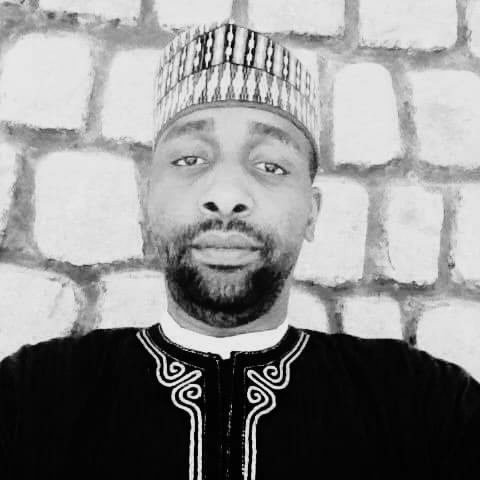Political Issues
Rivers state: Why Tinubu’s administration resort to state of emergency ? -By Abba Dukawa
Was declaration for Rivers state is necessary or political motivation? President Bola Amed Tinubu is fully aware that the declaration of State of Emergency in a prevalent democratic system is not the solution to the self-inflicted crisis bedeviling the State.What Tinubu needed most was to call Wike, his Minister of FCT, to order. The former governor Wike is the arrowhead of the crisis bedeviling the State.
Published
8 months agoon

The Supreme Court highlighted the severity of this situation on February 28, 2025, emphasizing the absence of a functional government in Rivers State and the executive’s role in collapsing the legislative arm, thereby creating a governance void
Additionally, recent reports indicate that militants have been vandalizing pipelines and issuing threats without any intervention from the state government, raising concerns about the state’s security and economic stability.Given Rivers State’s crucial role in the country’s economy, this situation necessitates urgent and cautious intervention from the federal government.Despite interventions from various stakeholders, including Tinubu himself, the crisis has persisted
.It’s worth noting that Tinubu is the third president to invoke Section 305 of the Constitution, after Ex-President Olusegun Obasanjo and Former President Goodluck Jonathan.
President Bola Tinubu’s declaration of a state of emergency in Rivers State has sparked intense debate about its necessity and potential motivations. During his nationwide speech, Tinubu warned that this decision could set off a chain of unpredictable events, potentially leading to radical ideologies and extremist tendencies.
Critics argue that Tinubu’s decision was unnecessary and politically motivated, particularly given his connection to Minister of the Federal Capital Territory Nyesom Wike, who is accused of being the “arrowhead” of the crisis. Some believe that Tinubu’s administration aims to remove Governor Fubara, perceived as hostile to the 2027 Tinubu/Wike project.Ultimately, the motivations behind Tinubu’s decision remain unclear, and its implications for Rivers State and Nigeria as a whole are yet to be fully seen.
Nigerian Bar Association (NBA) has strongly opposed President Bola Ahmed Tinubu’s declaration of a state of emergency in Rivers State and his suspension of Governor Siminalayi Fubara, his deputy, and members of the Rivers State President Tinubu, in his national address, cited rising political tensions and recent acts of pipeline vandalism as justification for the emergency declaration.House of Assembly. President Tinubu, in his national address, cited rising political tensions and recent acts of pipeline vandalism as justification for the emergency declaration.
The NBA pointed to Section 305 of the 1999 Constitution, which governs the procedure for declaring a state of emergency. While this section grants the President emergency powers, it does not allow for the removal or suspension of elected officials. The NBA stressed that the only constitutional method for removing a governor or deputy governor is through impeachment as outlined in Section 188.Furthermore, the removal of lawmakers must adhere to electoral laws and constitutional provisions insisted that a state of emergency does not equate to an automatic dissolution of an elected government, and any attempt to do so is an overreach of executive power.
Also Former Vice President Atiku Abubakar has strongly condemned President Bola Tinubu’s declaration of a state of emergency in Rivers State, calling it an “assault on democracy” that must be denounced in the strongest possible terms . Wazirin Adamawa argues that Tinubu’s administration is responsible for the chaos in Rivers State, either by enabling it or failing to prevent it. He emphasizes that the President should bear full responsibility for any compromise of federal infrastructure in the state, rather than punishing the people of Rivers State with a state of emergency.
Abubakar also accuses Tinubu of being a partisan actor in the political turmoil in Rivers, and his refusal to prevent the escalation is seen as “disgraceful.” The former Vice President believes that the destruction of national infrastructure in Rivers State is a direct result of the President’s failure to act, and punishing the people of Rivers State would be undemocratic.
In his statement, former vice president asserts that the declaration of a state of emergency “reeks of political manipulation and outright bad faith. He urges that the people of Rivers State should not be punished for the political gamesmanship between the governor and Tinubu’s enablers in the federal government. Other analyst believes that the situation in Rivers State, though politically tense, does not meet the constitutional threshold for the removal of elected officials.
For a state of emergency to be declared, Section 305(3) of the Constitution outlines specific conditions, including:
1. War or external aggression against Nigeria.2. Imminent danger of invasion or war
3. A breakdown of public order and safety to such an extent that ordinary legal measures are insufficient.4. A clear danger to Nigeria’s existence.
5. Occurrence of any disaster or natural calamity affecting a state or a part of it. 6. Such other public danger that constitutes a threat to the Federation.
Since the state of the emergency in Rivers state, political watchers questions whether the political crisis in Rivers State has reached the level of a complete breakdown of law and order warranting the removal of the Governor and his administration. Political disagreements, legislative conflicts, or executive-legislative tensions do not constitute a justification for emergency rule. Such conflicts should be resolved through legal and constitutional mechanisms, including the judiciary, rather than executive fiat.
A state of emergency is an extraordinary measure that must be invoked strictly within constitutional limits. The removal of elected officials under the pretext of emergency rule is unconstitutional and unacceptable.Tinubu’s administration decision to declare a state of emergency has been met with mixed reactions. Some argue that it was necessary to restore sanity to the state and ensure the country’s stability. Others,, believe that it was an unnecessary decision that could have dire economic and security implications for the state and Nigeria at large.
Was declaration for Rivers state is necessary or political motivation? President Bola Amed Tinubu is fully aware that the declaration of State of Emergency in a prevalent democratic system is not the solution to the self-inflicted crisis bedeviling the State.What Tinubu needed most was to call Wike, his Minister of FCT, to order. The former governor Wike is the arrowhead of the crisis bedeviling the State.
Now what the president tinubu decision for the declaration of a state of emergency in Rivers State was an unnecessary decision” that could have dire economic and security implications for the state and Nigeria at large. Other views whether president decisions of keeping his ally, Minister of the Federal Capital Territory Nyesom Wike, is worth jeopardizing Nigeria’s economy.The keen watcher of events regarded the decision as a display of unpardonable mediocrity and diabolic partisanship geared towards 2027.Tinubu administration wants to use the excuse of the political instability and other security challenges in Rivers to remove Governor FUBURA from the POWER considered hostile to the minister of the Federal Capital Territory or TInubu/Wiki diabolic partisanship geared towards 2027 election.
Dukawa public affairs commentator can be reached at abbahydukawa@gmail.com
Opinion Nigeria is a practical online community where both local and international authors through their opinion pieces, address today’s topical issues. In Opinion Nigeria, we believe in the right to freedom of opinion and expression. We believe that people should be free to express their opinion without interference from anyone especially the government.

Trending Articles


Lean Carbon, Just Power: Why a small, temporary rise in African carbon emissions is justified to reach the continent’s urgent electrification needs -By Louis Strydom
Policymakers have improvised. Ghana plugged supply gaps with a floating powership that initially burned heavy fuel oil, then switched to...


Fayose’s Thank You Message To Obasanjo: Uncouth, Unthinking And UnAfrican -By Isaac Asabor
Obasanjo, for his part, responded with a pointed but dignified jab, thanking Fayose for revealing his true nature and promptly...


Why Nigeria Must Act Now or Face the Consequences: The Wake-Up Call of the U.S. Religious Freedom Accountability Bill 2025 -By James Ezema
And to the Nigerian people—Christians, Muslims, and traditionalists alike—this moment demands unity, not division. Petition your lawmakers, demand justice, and...


Africa’s Mining Industry: New Opportunities for Cooperation with Russia and China -By Kestér Kenn Klomegâh
The Chinese delegation played a significant role in the event. Participants included Sun Yongjun, First Secretary of the Embassy of...


The Yerima Effect: How A Naval Officer’s Stillness Destroyed Wike’s Political Weapons, Collapsed His Judicial Shield, And Taught A Young Democracy To Stop Fearing Strong Men -By Prof. John Egbeazien Oshodi
The Ministry of Defence publicly defended the officer, not Wike. They stated clearly that Yerima acted within lawful authority. That...